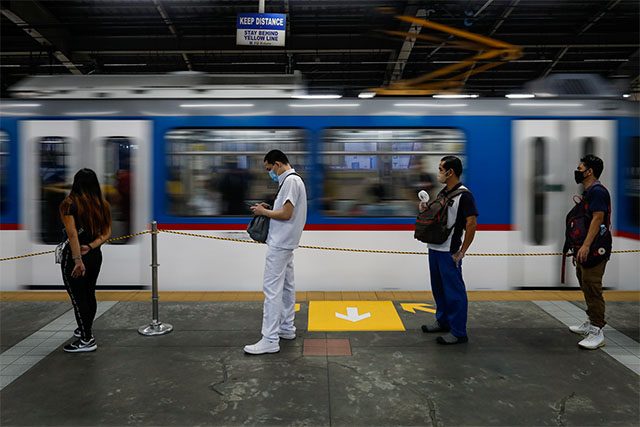
Some Filipinos are prepared to return to the previous normal routine in the next few months, a research conducted by an analytics firm said.
Qualtrics, an experience management company, on Wednesday disclosed findings of a research outlining the extent to which COVID-19 has encouraged consumers to embrace digital channels.
Findings of this research showed that 40% of respondents said they are likely to choose eating at a restaurant in the next six months.
In its research, most of the respondents or 94% of them are still concerned with the pandemic.
Despite the concern, at least 37% of them plan to take a family holiday, 36% plans to use public transport and 34% wants to visit the mall again in the next six months.
In terms of travel, more than half are not expecting to be traveling by air within the next six months. At least 57% are not keen on embarking on international flights while 54% are also planning on traveling in local destinations by plane.
“Even though consumers are beginning to go back to some previous habits, high levels of ambiguity remain, meaning businesses must be able to understand and quickly respond to changing environments,” said Harish Argarwal, Head of CX Strategy for Southeast Asia.
Aside from hinting some form of normalcy, the move to online platforms for acquiring goods and services still prevailed as most parts of the country were placed under relaxed forms of quarantine, general community quarantine and modified GCQ.
Two-thirds or 67% of the respondents said they purchased more online. Of which, 62% also used online banking more frequently even as the year ends.
Shopping for groceries also increased by 53%, whereas the visit to online retailers decreased by 55%. In terms of food, 47% said they prefer to pick up food from a restaurant more than dining in.
Moreover, 76% of respondents said they are likely to conduct online shipping over the next six months.
Meanwhile, the number of Filipinos expecting COVID-19 to affect their day to day life for more than a year has increased by 5%, from 40% in June 2020.
These results are based on a September 2020 survey conducted among 328 people, aged between 18 and 65 in the Philippines.
“After months of disruption, we are beginning to see new behaviors and preferences emerge that are likely to remain post-pandemic. There is no doubt that there has been a massive shift towards digital, making it critical for brands to ensure they are able to optimize the experience they deliver on their digital channels including mobile applications,” Argarwal observed.
As of November 4, Philippines has a total of 387,161 cases wherein 30,876 active ones, 348,967 recoveries and 7,318 deaths.









